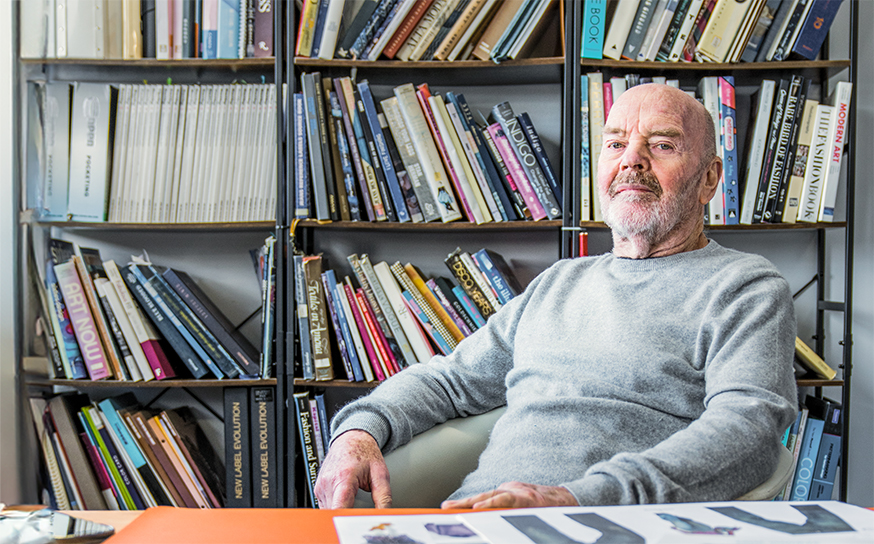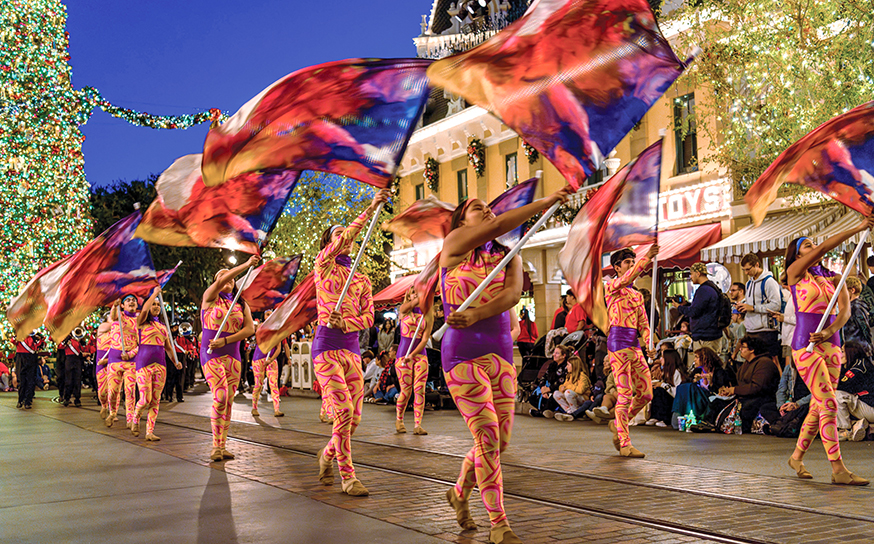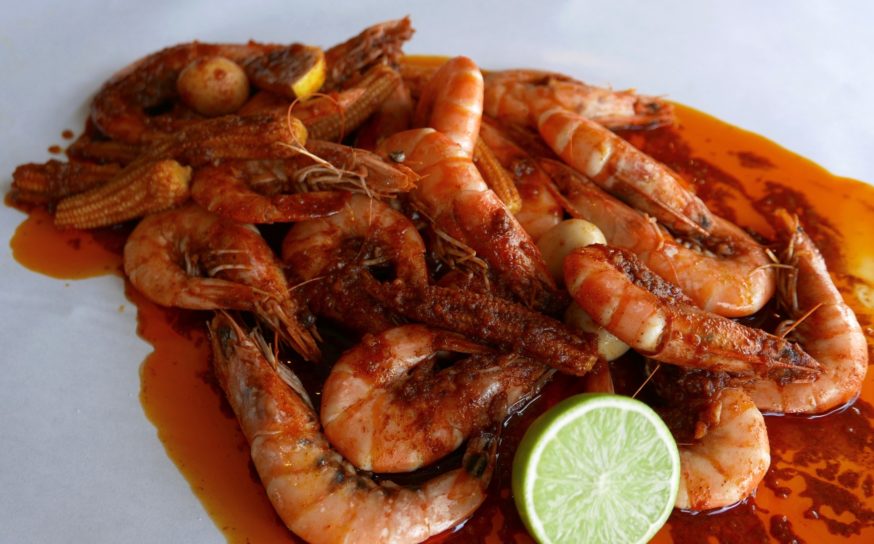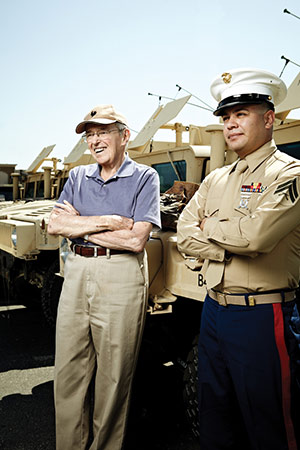
Patriot Names
A soldier and a Marine. Different wars and different generations but a singular sense of duty.
-
CategoryPeople
-
Photographed byJames Acomb
We celebrate this Veteran’s Day with a conversation between two veterans who have defended their country—a 32-year-old modern-day warrior, Esgar Reynaga, and a 92-year-old WWII soldier, Jack Kay.
VB editor Linda Grasso poses the questions.
What made you want to be a Marine, Esgar?
ER: I was raised by a single mom and joined ROTC in high school. I enlisted in the Marine Corps and served from ’04 to ’08, serving in Iraq for one year.
It doesn’t get more dangerous than being a Marine. How did you deal with fear?
ER: Everyone is afraid. But as a Marine, you know what you are getting into. When that first round flies over your head, no matter how well-trained you are, you think, “Oh my God!” With combat, its a them-or-me situation. And it wasn’t going to be me.
Jack, tell us about your experience.
JK: I served three years. I ultimately went to Germany. I was in a combat division, but my job was an administrative one working for the division surgeon. We were responsible for the health of 15,000 men. We saw all the people coming in off the battlefields, and it was not an easy experience.
Lots of differences between serving in WWII and the Iraq War, I’d imagine. Any similarities?
JK: The one similarity is patriotism. But the motivations of getting into the wars are very different. We were drafted into WWII. Today there are volunteers like Esgar; they want to go. They are better trained and far more professional.
Do you feel that we, as a nation, show enough appreciation for the armed services?
JK: When I came home from WWII in 1946, everyone wanted to forget about the war and get on with their lives. I feel in the last five years that there’s a growing appreciation for what we vets did—all of it due to Tom Brokaw’s book The Greatest Generation. With our gang now dying off at 600 or 700 a day, we are finally getting recognition. Today, I think our country is far more appreciative of the troops.
ER: I agree. Sometimes when I wear a hat or sweater that has something on it indicating I served, people will come up and express thanks. Once I was on a Greyhound bus in uniform, and someone came up and gave me $100. I told him I could not take it, but he wouldn’t take the money back.
Wow, Jack, compare your 1940s boots to Esgar’s. The leather and soles are so thin.
JK: Hard to believe we wore those. During the Battle of the Bulge, it was the worst winter in 50 or 100 years. Snow was waist-high. Ambulances couldn’t get on roads. You saw guys bleed to death. They had the idea to go to Colorado and get dogs and sleds. We got them, but they didn’t come until spring on the last day of the war. Those boots weren’t adequate. We were losing more men to trench foot than to battle. The Germans were much better equipped.
Do you feel that, today, the U.S. is safe as a nation?
JK: I am very confident that we have everything necessary to protect ourselves as a nation. The question is the unknown. We don’t know what is going to hit us.
ER: Yes. Since 9/11, I think our country is a safer place. It was a wake-up call that made us better prepared. And we are now more strict about who we let in.
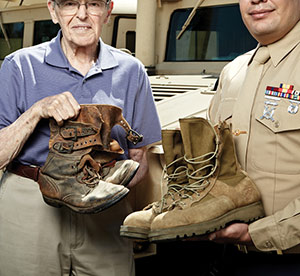
Did having already served in enemy territory influence your thoughts about what we were doing in this past war?
JK: I served my country in WWII because the issue was of a clear and present danger: we had been attacked. In Iraq and Afghanistan we should never have been involved. The issues were not that clear … they were only perceptions of danger. These were cases where political agendas trumped good sense.
Do you feel the U.S. should police the world?
JK: America’s place is to help police the world—not do it alone. It should be done as part of a united effort of all countries taking a moral stand via the United Nations.
What is your definition of a hero?
JK: Anyone who puts his or her life on the line for the safety and freedom of others.
If you had to do it all over again, would you serve again?
JK: Absolutely. I would not trade it for anything.
ER: In a heartbeat. That’s what I tell the Sea Cadets that I train today.
Architect May Sung Comes to The Rescue on a Studio City Reno Gone Wild
In the right hands…finally!





